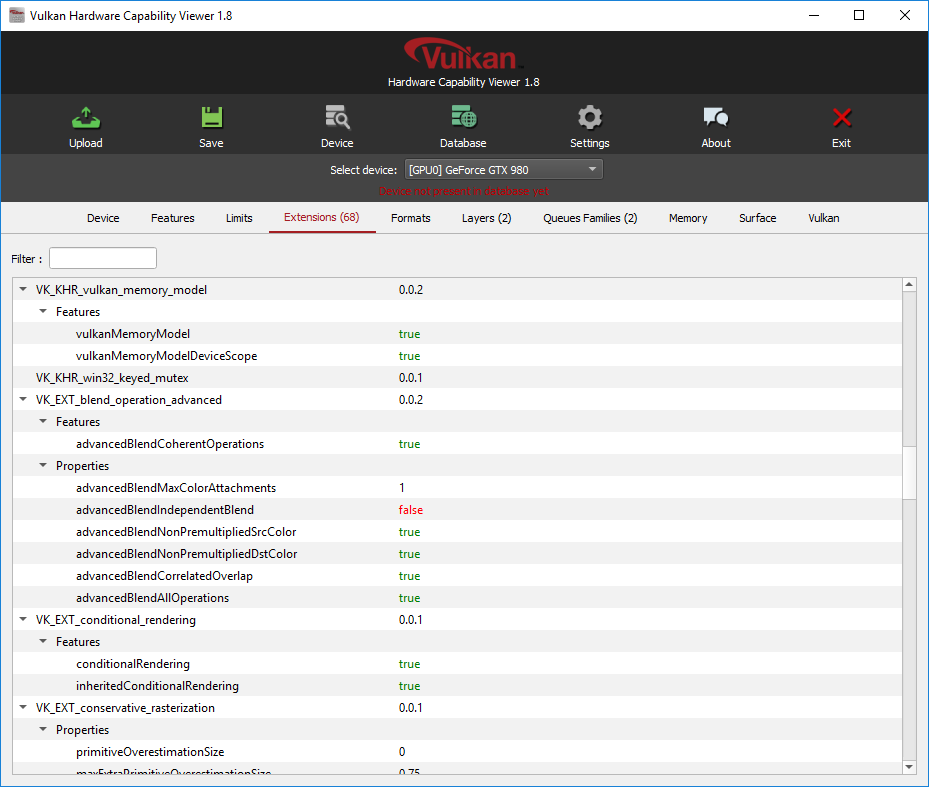Version 1.92 of the Vulkan Hardware Capability Viewer is now available for all platforms (Windows, Linux, Android).
This version fully supports Vulkan 1.1 and adds support for reading additional features and properties for the following extensions:
- VK_KHR_shader_float16_int8
- VK_KHR_shader_float_controls
- VK_EXT_fragment_density_map
You can download the new version from https://vulkan.gpuinfo.org/download.php.
